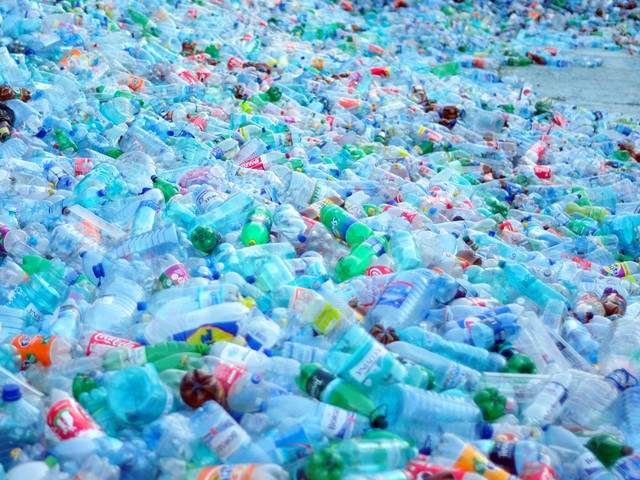In California, a company called TechniSoil is working to repave the roads with plastic. It is an expensive process, since they need special equipment to extract and grind the topmost 3 to 6 inches of asphalt. Repaving a single lane mile would require 42 truckloads of new material hauled out to California. Each lane requires the equivalent of 150,000 water bottles, and that would make a huge difference to the earth’s pollution if California and other states pave most of their roads like this. The article also says that the plastic is more resistant to potho les and cracking, and last 3 times longer than roads with standard asphalt. Even thought doing this would cost a lot of money, it would also save money with the recycling and the potholes and cracks. The standard process requires heat, but the new process works cold, saving more energy as well.
les and cracking, and last 3 times longer than roads with standard asphalt. Even thought doing this would cost a lot of money, it would also save money with the recycling and the potholes and cracks. The standard process requires heat, but the new process works cold, saving more energy as well.
One reason why I think that this is a really good idea is that it will reduce significantly the pollution in the ocean and on land, which is really important to me. One of the main reasons that many ocean animals are dying is because they are swallowing PLASTIC, and I think that this will really help with that. Also, like the the article said, plastic can take centuries to compose, so we could reuse it so it wont gunk up the earth for centuries while we wait for it to decompose. Also, this will be good for our roads. The article said that this will make our roads stronger, and while this process will be expensive to do, it will also save money in the long haul. All in all, I think that this process will really help the earth. It will also help us too.
QUESTIONS
- Is this happening in other countries too?
- How long will this take to do all of the U.S if all the states do it?
- How does this process actually work?
Dear Avery McPhail,
I can see that you did a lot of research and learned a lot of things. I am just wondering how they break down the plastics with coldness rather than heat. I love the awareness of our environment.
Sincerely,
Alex Stillwell